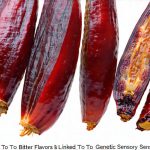The sweet taste is often associated with pleasure and reward, deeply ingrained in our evolutionary history. For centuries, sugars were relatively scarce in the typical diet, primarily found in fruits and honey. Our bodies evolved to crave this energy source, but modern food environments provide an abundance of sugar – not just from obvious sources like candy and soda, but also hidden within processed foods. This readily available sweetness has led many to question whether even “natural” sugars can contribute to digestive discomfort or broader health issues. Understanding the relationship between natural sugars and digestion requires moving beyond simple demonization and appreciating the complexities of carbohydrate metabolism, gut microbiome interactions, and individual sensitivities.
While often contrasted with refined sugars, “natural” sugars – those found inherently in foods like fruits, vegetables, and dairy – aren’t automatically free from potential digestive consequences. The source matters, yes, but so does the type of sugar, the quantity consumed, and how it interacts with our unique gut environment. Many assume that because something is “natural,” it’s inherently harmless, yet this isn’t always true. Some individuals experience significant distress even with natural sugars due to underlying conditions like Irritable Bowel Syndrome (IBS) or fructose malabsorption. This article will delve into the ways natural sugars can impact digestion, exploring both common and less-obvious mechanisms at play.
The Spectrum of Natural Sugars
Natural sugars aren’t a monolithic entity. They come in various forms, each processed differently by the body. The most prevalent include:
- Fructose: Found in fruits, honey, and some vegetables. It’s often more difficult for some people to digest than glucose.
- Glucose: The primary sugar used by the body for energy; found in many foods, including fruits, vegetables, and grains.
- Sucrose: Commonly known as table sugar, but also naturally occurring in fruits and vegetables – it’s composed of both glucose and fructose.
- Lactose: Found in dairy products. Individuals with lactose intolerance struggle to digest this sugar due to a deficiency of the lactase enzyme.
The digestive process begins even before food reaches the small intestine. Chewing breaks down larger carbohydrate structures, and salivary amylase starts enzymatic digestion. However, much of the breakdown occurs in the small intestine, where enzymes like sucrase, lactase, and maltase break down disaccharides into monosaccharides (single sugars) – glucose, fructose, and galactose – which are then absorbed into the bloodstream. Problems arise when there’s an insufficiency of these enzymes or if certain sugars aren’t efficiently processed. For example, high-fructose foods can overwhelm the digestive system in individuals with limited fructase enzyme activity leading to fermentation within the gut. This isn’t necessarily a sign that fructose is inherently “bad,” but rather that some people have difficulty utilizing it effectively.
The speed of sugar absorption also plays a role. Sugars from whole fruits, containing fiber, are absorbed more slowly than those from fruit juice, which lacks this buffering effect. Fiber slows down digestion and provides a sense of fullness, while rapid sugar spikes can contribute to digestive upset in sensitive individuals. Furthermore, the gut microbiome – the vast community of bacteria residing in our intestines – significantly influences how we digest sugars. Some bacteria thrive on certain types of sugars, producing beneficial byproducts, whereas others may ferment undigested sugars leading to gas, bloating, and discomfort. Can gut sensitivities cause panic attacks? can also be related to the microbiome.
Fructose Malabsorption & FODMAPs
Fructose malabsorption is a relatively common condition where the small intestine doesn’t adequately absorb fructose. This isn’t the same as fructose intolerance, which implies more severe symptoms; rather, it indicates reduced absorptive capacity. Undigested fructose then reaches the large intestine, where bacteria ferment it, producing gases like hydrogen and methane – leading to bloating, abdominal pain, diarrhea, or constipation. It’s estimated that a significant portion of people experience some degree of fructose malabsorption, though many remain undiagnosed because symptoms are often mild or attributed to other causes. Common additives that cause digestive issues may also contribute to these symptoms.
Diagnosing fructose malabsorption typically involves a hydrogen breath test. This test measures the amount of hydrogen gas exhaled after consuming a specific dose of fructose. Elevated hydrogen levels indicate bacterial fermentation in the large intestine due to unabsorbed fructose. Managing this condition generally requires reducing high-fructose foods like honey, apples, pears, mangoes, and high-fructose corn syrup. However, it’s crucial to avoid completely eliminating fructose as it’s found naturally in many healthy foods.
Closely related is the concept of FODMAPs – Fermentable Oligosaccharides, Disaccharides, Monosaccharides And Polyols. Fructose falls into the ‘monosaccharide’ category. A low-FODMAP diet, often recommended for IBS sufferers, restricts these fermentable carbohydrates to reduce digestive symptoms. This isn’t a long-term dietary solution for everyone, but rather an elimination diet used to identify trigger foods and understand individual sensitivities. It’s best undertaken with the guidance of a registered dietitian or healthcare professional. Why even healthy diets can cause discomfort is something to consider when changing your diet.
Lactose Intolerance & Dairy Sensitivity
Lactose intolerance is arguably one of the most well-known sugar-related digestive issues. It arises from a deficiency of lactase, the enzyme responsible for breaking down lactose (milk sugar). Without sufficient lactase, undigested lactose ferments in the large intestine causing gas, bloating, diarrhea, and abdominal cramps. The severity of symptoms varies greatly depending on the degree of lactase deficiency and individual sensitivity.
There are different types of lactose intolerance:
- Primary Lactose Intolerance: Develops gradually with age as lactase production declines.
- Secondary Lactose Intolerance: Occurs temporarily after intestinal damage from illness (like gastroenteritis) or surgery.
- Congenital Lactose Intolerance: A rare genetic condition where babies are born without the ability to digest lactose.
Managing lactose intolerance typically involves reducing dairy intake, opting for lactose-free alternatives, or using lactase enzyme supplements before consuming dairy products. It’s important to note that many people with mild lactose intolerance can tolerate small amounts of dairy, particularly hard cheeses and yogurt (which contain less lactose). Can food intolerances cause eye puffiness? is sometimes related to dairy sensitivities.
Sugar Alcohols & Polyols
Sugar alcohols (or polyols) are often used as sugar substitutes in “sugar-free” or “diet” products. Common examples include sorbitol, mannitol, xylitol, and erythritol. While they provide sweetness with fewer calories than sugar, many individuals experience digestive issues after consuming them. This is because the small intestine doesn’t efficiently absorb sugar alcohols, leading to fermentation in the large intestine—similar to fructose malabsorption.
Symptoms can include bloating, gas, diarrhea, and abdominal discomfort. Xylitol, for example, is known to have a strong laxative effect even in relatively small quantities. Erythritol is generally better tolerated as it’s mostly absorbed in the small intestine. However, excessive intake of any sugar alcohol can cause digestive upset. It’s also essential to be aware that some sugar alcohols (like xylitol) are highly toxic to dogs and other pets. Avoiding soy when you have digestive issues can be similar to avoiding sugar alcohols.
In conclusion, the relationship between natural sugars and digestive issues is nuanced and far from straightforward. While often perceived as healthier alternatives to refined sugars, these naturally occurring carbohydrates can still cause discomfort for susceptible individuals. Understanding the different types of sugars, how they’re digested, and individual sensitivities – including conditions like fructose malabsorption, lactose intolerance, and sensitivity to sugar alcohols – is crucial for managing digestive health. Can food sensitivities cause inflammation can be a consequence of these issues. It’s vital to prioritize a balanced diet rich in whole foods, pay attention to personal tolerances, and seek guidance from healthcare professionals when needed. Can artificial flavors cause digestive issues? is another factor to consider when optimizing your health.


















